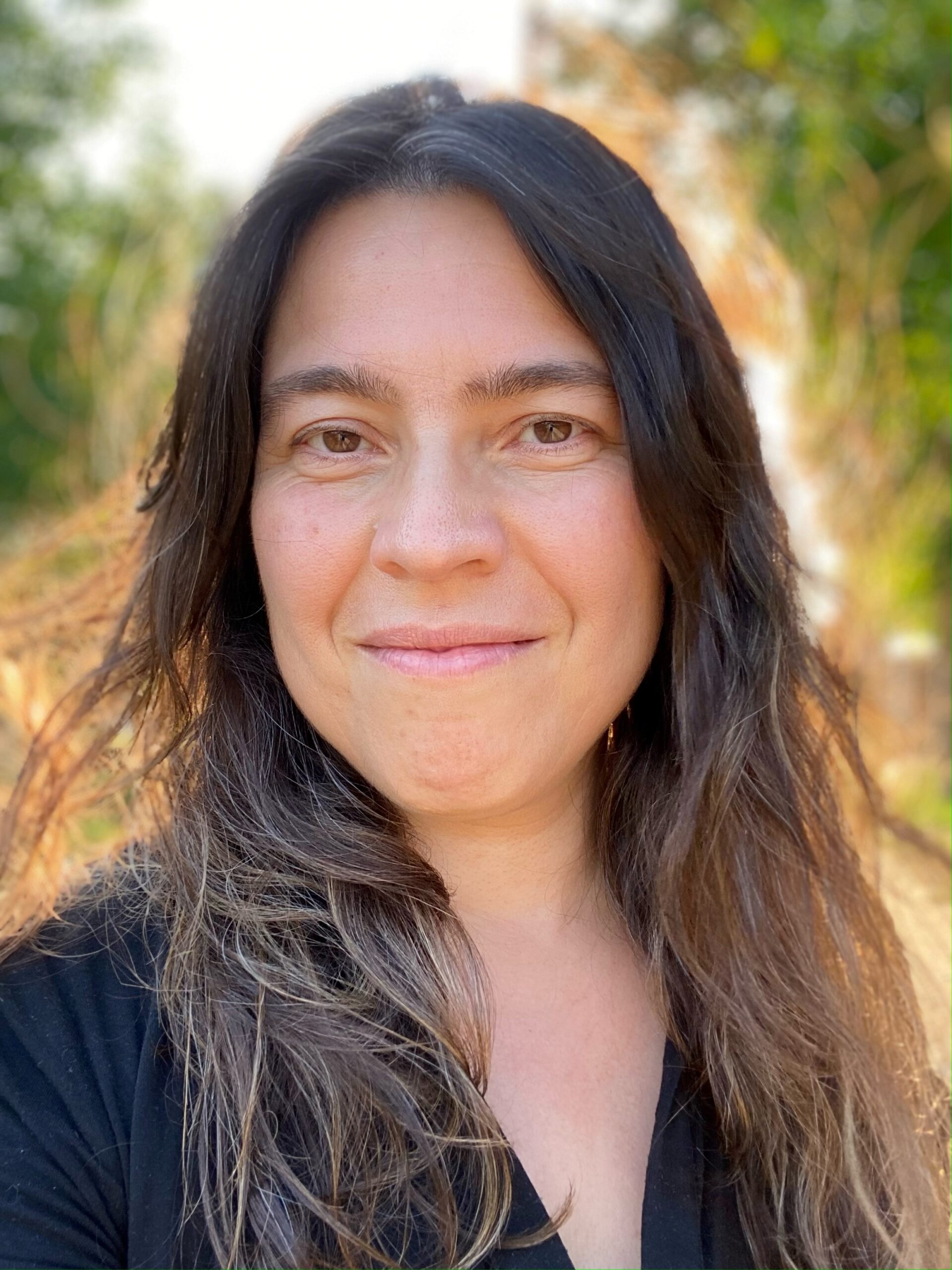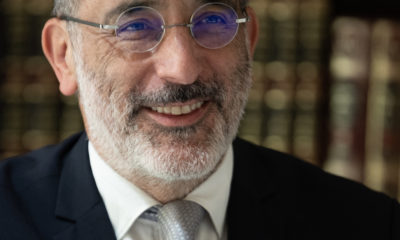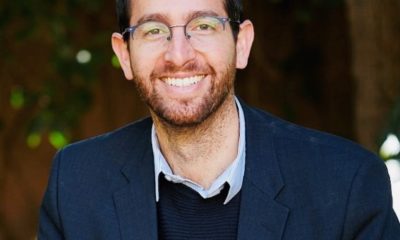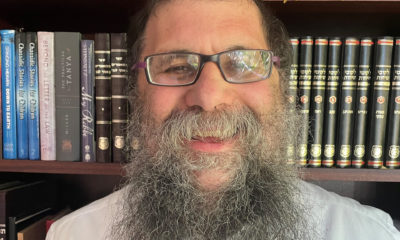
Religion

Point a finger, and three fingers point back
Here we are, it’s Rosh Hashanah, the birthday of humanity, which brings with it apples and honey, songs and shofar blasts, excited children and adults, new clothes, and the Torah scrolls dressed in white. Friends and long-not-seen members of the community gather and wish one another a sweet and happy New Year. Large meals are made ready for after the synagogue for extended families and friends. It’s a party, right?
And yet, in the synagogue at the heart of the Torah service, we read about the tragically painful complicated stories of our first Jewish ancestors. Our heroes, our giants, the exceptionally beautiful Sarah and her husband, Abraham, who were the first to hear the call of G-d for a higher purpose, to follow their hearts and G-d’s voice – “lech lecha to a place that I will show you” – to new possibilities, to create a new nation, to bring blessings and light to the world, broke down in trying to hold this vision. As they grew older, and had no child, with each passing day, G-d’s promise to them seemed to be farther away. There’s nothing wrong with taking matters into one’s own hands, but they took Hagar, Sarah’s slave woman, into their marriage, to bear Abraham’s first son, Ishmael, and with that hurt, distrust, objectification, humiliation, oppression, selfishness, and power struggle arose and multiplied.
What’s the purpose of this challenging story at the centre of this beautiful, literally sweet holiday? There are no winners here. The model couple is struggling, the women are hurting each other, Hagar nearly kills Ishmael then leaves, with her – their – son, and when Abraham is ready to sacrifice Isaac, his and Sarah’s only son, their hope, their promise, Sarah, heartbroken, dies. Even if G-d comes in the end scene to redeem Isaac with a ram, Isaac and Abraham depart, never again to talk to each other. And with that, trauma continues within our sacred story for generations and for centuries. Neat!
What do we learn? That even our best, our most beloved ones can mess up? That even when we’re in pursuit of the highest of values, nothing less than the call of G-d, things can go wrong? And that, unless we do something, even when we’re celebrating and glazing apples and challah with honey, our unresolved stories will haunt us! We need to remember that we have work to do, because this story is a space holder for all the messy stories in our lives.
But how, you might ask?
Well, you know, we’ve inherited a wealth of wisdom for teshuvah, for repairing ourselves and the world. Jewish tradition laid out distinct steps for this process: acknowledging harm done; feeling remorse about it; restitution; committing to not doing that same act again in a similar situation; confession; asking for forgiveness, really, in any order, each essential to clear up our mess, and among these, I found something truly unique, truly phenomenal, and game changing.
Our confessional prayer on Yom Kippur, the Viddui, features a long list of transgressions in the first person plural “we”, in other words, what we have done. Why? Surely it can’t be possible that we have done all those, right? So why are we saying them?
Perhaps we say them so that we create a protective cover for those who do need to say them, but for whom it would be unsafe or embarrassing to say it as an individual. That’s caring, right? But not very challenging for ourselves. We can always say, “That one was for someone else.”
Or perhaps, as one of my Batmitzvah students pointed out, it’s for the healing which is much more powerful if done communally. “For example, to heal the environment, I can alone decide not to use plastic, but if my whole community also decides this, the impact is more profound.” The quote from the Talmud that “All Israel are sureties – responsible – for another” fits her explanation. No matter who committed the wrong, we’re all responsible together to fix even the mistake of our fellows as well.
Abraham Joshua Heschel, the famous 20th century rabbi, philosopher, theologian, and human rights activist adds to the weight of responsibility. He said it isn’t just that we’re sureties for one another, but that “indifference to evil is worse than evil itself, that in a free society, some are guilty, but all are responsible”. If we didn’t speak up, didn’t step in to stop or prevent harm, we’re just as responsible for its occurrence. Can you yet hear that voice inside your head about the time you didn’t speak up?
There’s yet one more step closer. In the realm of restorative justice, there’s an understanding that in a group or community situation, the trouble is never the fault of one person, but everyone’s. While the most common practice in our society is to find the culprit or scapegoat and remove them from society to the naughty corner or prison, which was part of the ancient Yom Kippur ritual as well, in which they would chase away the scapegoat with their sins, this custom has been replaced and outgrown by this truly amazing communal confessional prayer, the Viddui, in which we take responsibility communally.
We cannot point a finger at any one in a family, a workplace, city, country, or world, because then three fingers will immediately point back at ourselves. We’re part of an organic whole, and we’re part of every action. With our actions, or lack thereof, we each write our communal story for better or for worse. And that’s a radical acknowledgment that in any harm done, we’ve been part of it and we need to take responsibility for the harm done as our own, and so each member of that conflict. That’s a radical concept and if practiced, a lot of stories out there would change. Can you imagine Abraham, Sarah, Hagar and, possibly G-d, or the voice Abraham heard doing their Viddui together: “We have hurt, we distrusted, we objectified our fellows, we humiliated, we oppressed.”
My student asked with uncertainty on her face, “Would that be enough though?” She was right, it’s not enough. There are still all the other steps out there, but taking ownership for any wrong done together is a good start to heal the stories that we carry from generation to generation, from family to family, to workplaces, to faribels. Try it out! See how the story changes.
I wish you all shana tova, a truly sweet New Year!
- Andrea Kuti is originally from Budapest, living in Cape Town, and is in her last year of rabbinical studies at ALEPH, Renewal Rabbinical Seminary.










